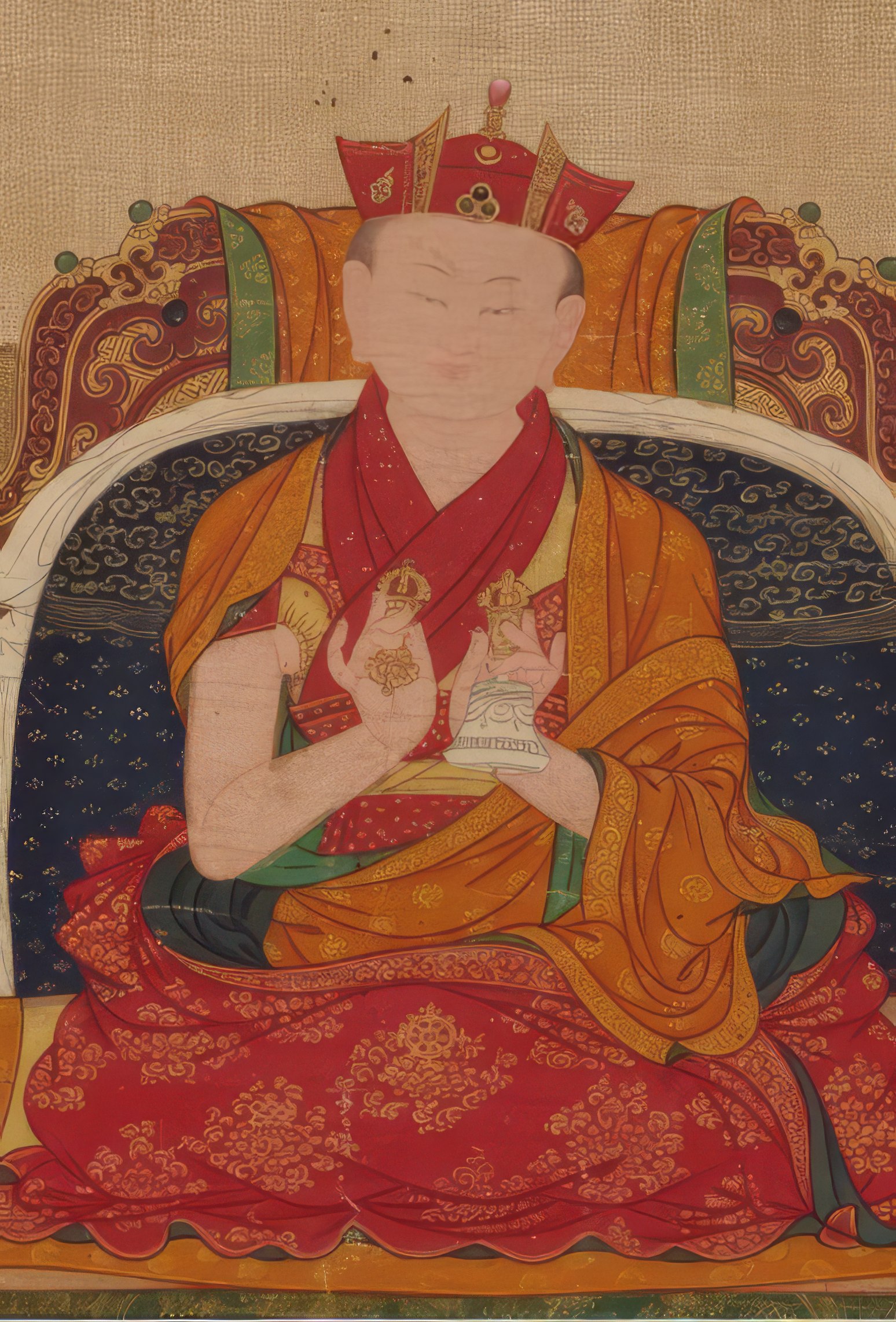 The 10th Shamarpa was a brother to the Penchen Lama of the Gelugpa Sect. His infant days were spent in the central province of Tsang. The child-Rinpoche, with bubbling candor and innocence would tell many a tale of his past lives and also of events, happening within Tsürphu Monastery, much to the amusement and the astonishment of his parents. He was recognized and enthroned as the 10th Shamarpa by the 13th Karmapa Dündul Dorje and by the 8th Situ Rinpoche, from both of whom he had received all the Instructions of the Lineage. His education was, in the best sense, liberal, being under the broadening influence of many great lamas and scholars who belonged to other schools of thoughts.
The 10th Shamarpa was a brother to the Penchen Lama of the Gelugpa Sect. His infant days were spent in the central province of Tsang. The child-Rinpoche, with bubbling candor and innocence would tell many a tale of his past lives and also of events, happening within Tsürphu Monastery, much to the amusement and the astonishment of his parents. He was recognized and enthroned as the 10th Shamarpa by the 13th Karmapa Dündul Dorje and by the 8th Situ Rinpoche, from both of whom he had received all the Instructions of the Lineage. His education was, in the best sense, liberal, being under the broadening influence of many great lamas and scholars who belonged to other schools of thoughts.
He traveled extensively, especially in Kham and within the areas of Derge and Nangshen, giving teachings and Empowerments to lamas and Tulkus as well as to the lay population. In central Tibet, having visited many holy places to pray and to make offerings, he returned to Tsürphu to see the Karmapa – his Guru among gurus.
Some years later, it was at the time when Tibet was fatalistically divided, both politically and ecclesiastically. The 11th Dalai-Lama had passed away; the Regent with his sectarian followers, who were unable to see beyond the narrow interests of their monasteries, had stooped to the persecution of the Shamarpa and the seizing of his Red Crown. In collusion with the army, all the monasteries were forcibly appropriated and integrated into the Gelugpa School.
Thereafter, there was to be, by law, no lama answering to the name of The Shamarpa; the recognizing and the enthroning of whom were to be most strictly forbidden. It was also forbidden of him to remain in his own country. The day was a day of deep sorrow for Tibet when the 10th Shamarpa left the country never to return. In face of such monumental inhumanity, the true spirit of generosity and patience in a bodhisattva shone through in its fullest magnificence. The Shamarpa spent his remaining years in Nepal, diligently, in buddha activities and seeing to the spiritual needs of the people wherever they arose.